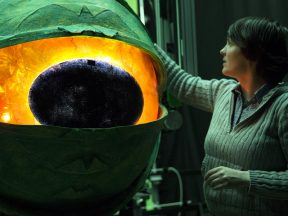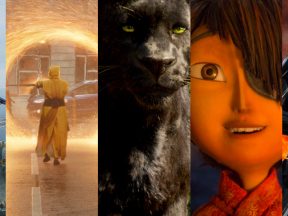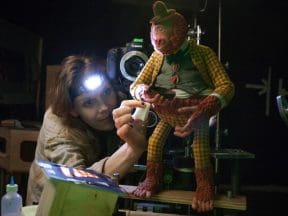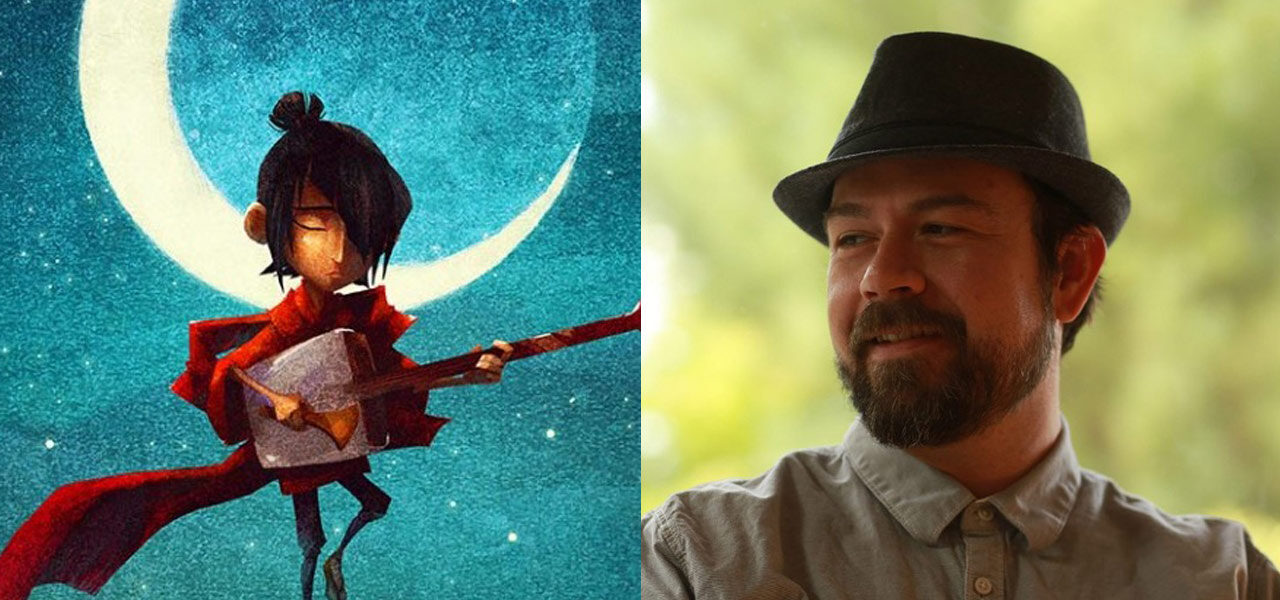
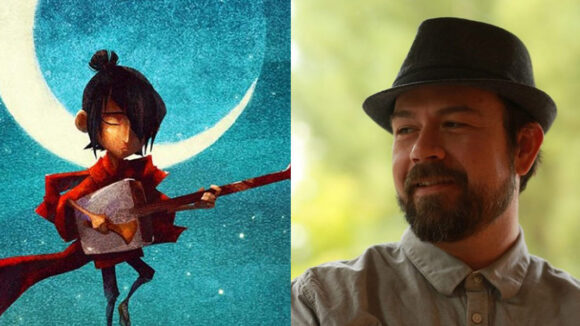
How ‘Kubo And The Two Strings’ Went From ‘Pure Heaven’ To Nearly Breaking Creator Shannon Tindle
Kubo and the Two Strings creator Shannon Tindle took to Twitter over the weekend to recount the nightmare experience of being replaced as director on Kubo and the Two Strings.
According to Tindle, who is currently a showrunner at Netflix, the Kubo story started in 2001 when he began imagining the story of a one-eyed boy who made magical art that could heal his mother. The nascent narrative was especially personal to Tindle at the time, as he had just met his future mother-in-law who had dementia. Like Kubo’s mother in the film, she suffered from memory loss.
Tindle was also surrounding himself with Japanese folktales at the time, and the circumstances of his life melded with those influences into the earliest versions of Kubo and his mother.
“We hit it off immediately,” Tindle recalled of those early days spent with his future mother-in-law. “And the story of a woman trapped in her mind, taken care of by her child, kinda merged with all these folktales I’d been reading.”
Over time, the idea evolved into a story which Tindle pitched to Laika. Within weeks of the pitch, Tindle received an offer and development began in earnest.
“I was insanely excited. The idea was wild and extremely personal, and someone was gonna pay me to develop and eventually direct it. Amazing, right?!” he recalled.
Tindle then began to work with writer Marc Haimes (Nimona, Lost Ollie, Ultraman) on a screenplay. “It was a dream – pure heaven,” remembered Tindle. The small team working on the project put together a screenplay, a 17-inch character line-up, a paper sculpture of Hanzo made by his wife, and an animatic. Many of those assets appear in a video uploaded to YouTube in 2017 by Daniel Hashimoto, who worked with Tindle on the animatic of the film’s opening sequence.
According to Tindle, the studio quickly fell in love, and greenlit the project. Several months later a first screening was hosted, “something not far at all from the film you saw in theaters,” Tindle explained. The studio liked what they saw enough to send Tindle to L.A. to direct the first voice screening.
“All seemed well. But it wasn’t. Not at all,” Tindle tweeted. “There were signs, things I should’ve seen, but I was in it and loving it. Long story short, after nearly two years of work, I was removed as director – removed from something that came so deep from my heart, and if [sic] nearly broke me.”
The experience took a toll on Tindle’s mental and physical health, but he credits many of the people who worked on Kubo with keeping him afloat during the darkest time in his career. “That and my stubbornness to make something else,” he added.
Eventually, after a series of fits and starts, he was able to get back to the place he wanted to be, professionally and creatively. He is currently a writer and director on Netflix’s Ultraman feature and is executive producer-showrunner of the upcoming hybrid series Lost Ollie, directed by Peter Ramsey.
Kubo and the Two Strings released in the U.S. on August 19, 2016, as Laika studio head Travis Knight’s feature directorial debut. The film boasts an exceptional 97% Tomatometer score on Rotten Tomatoes, was nominated for two Oscars – animated film and achievement in visual effects – and won the BAFTA for best animated feature, among dozens of other lofty kudos.
In the end, Tindle got a story credit on the film and his wife Megan Tindle got a paper artist credit.
“I share this not from anger or spite,” Tindle explained. “I am still exceedingly thankful that something as personal as Kubo was released, and I still recognize him as the child I had imagined. That’s a blessing. I share this as a story of hope.”
He summed up the moral of his story with a word of warning, a word of hope, and an offer to anyone else who feels they’ve had the rug pulled from under them.
“Don’t let other people, corporations, or setbacks get in the way of your stories. People want to hear them. They want to see them. We’re the ones with the dreams that people want to experience. That is POWERFUL. Know that. Embrace it. And if you wanna chat, I’m around,” he finished.
You can read the entire series of tweets and the incredible outpouring of support for Tindle on his Twitter.

